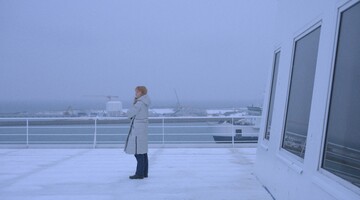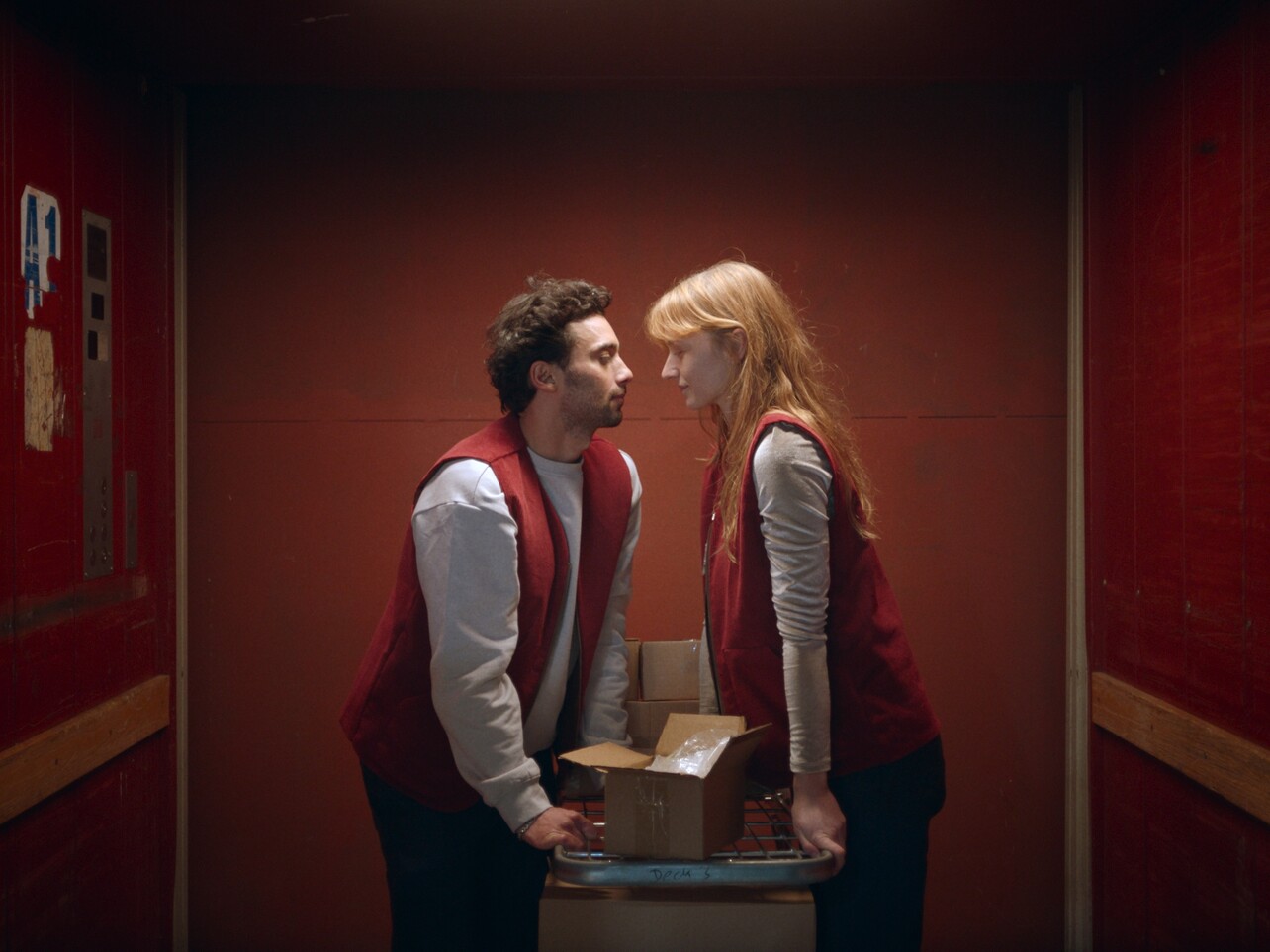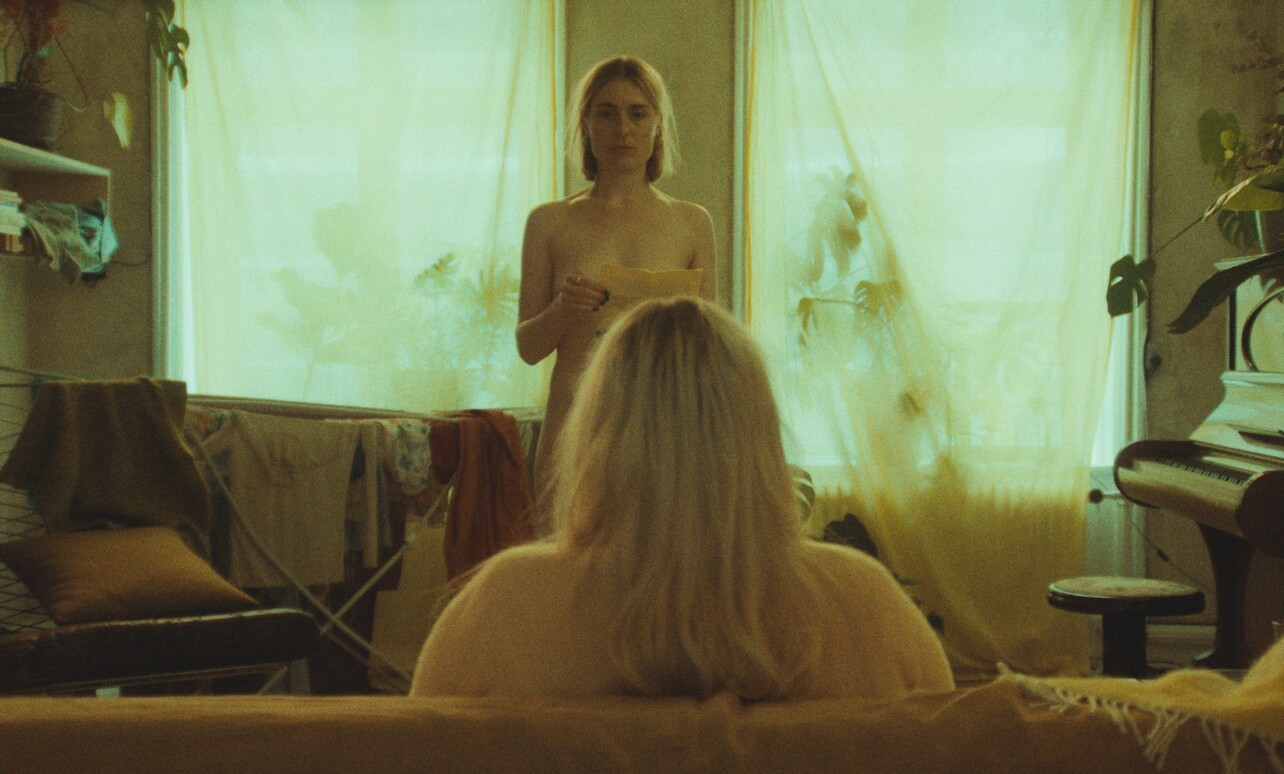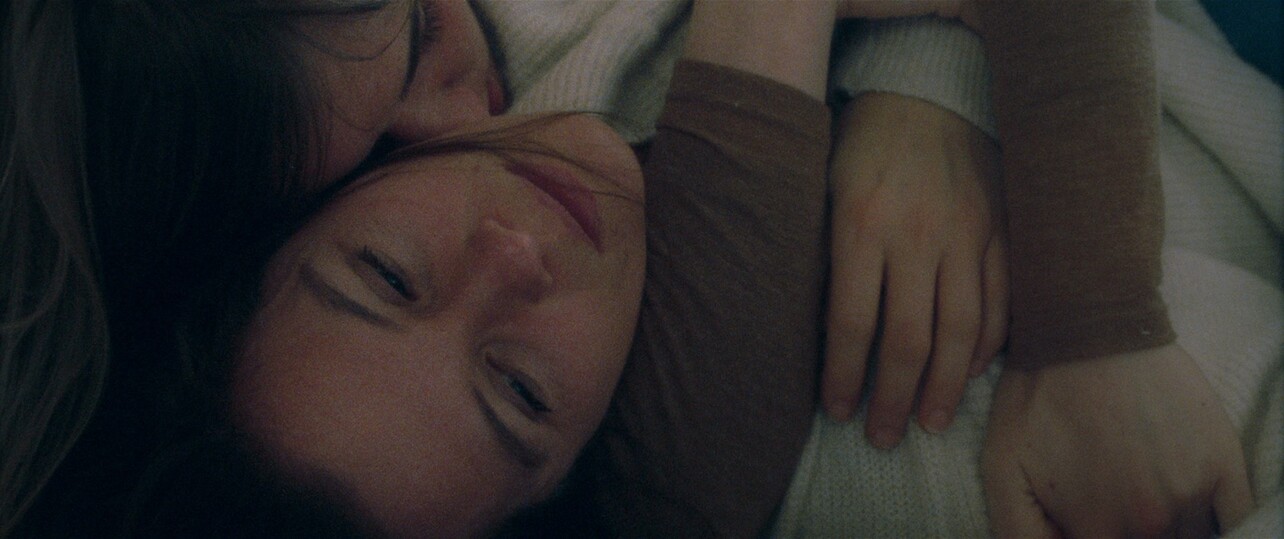
MQ AiR Hilke Rönnfeldt on closeness, interpersonal complexity and creative processes
Hilke Rönnfeldt is a German filmmaker with Danish-Icelandic roots. Her short films have been shown at international film festivals. In June 2025, she will be a guest at the MuseumsQuartier as part of the MQ Artist-in-Residence programme in cooperation with VIENNA SHORTS. Anna Roth from VIS spoke to Hilke Rönnfeldt about her film work during her residency.
This year’s theme of VIENNA SHORTS is Move Closer! Radical Intimacy.
What does intimacy mean to you—both personally and in a cinematic context—and what makes it radical?
I feel intimacy is often regarded as a foremost private and personal space, which isn’t necessarily true. Opening it up to a common space demands courage, that’s for me a radical act. In my films I often use intimacy as a kind of second language, I would even say as I work not very dialog based, it’s often first language between my characters (human and non-humans).
You created this year’s festival trailer.
How did you approach the concept of the trailer—was there a specific impulse or image that triggered everything?
For me intimacy incorporates closeness and it started with the thought how close can you get. And so I landed on the microscopic level and the a bit absurd thought that the most unaware intimate relationship I have, is probably with the 100 billion bacteria in my body. I personally am very fascinated by life of bacteria, but intimacy with bacteria can also have other consequences, so from there on I kept exploring this idea further.
Many of your films deal with interpersonal complexity and interaction.
What continues to draw you to these themes?
It’s just a mystery that keeps on giving every day for me, it can be heart breaking or absurd and still don’t understand a lot of it, so I guess I have to keep on working with it.
To what extent do autobiographical experiences influence your work—if at all?
That varies a lot, I think there is always something personal for me in it to different degrees. Music is an important part of my life, so this informs my work a lot, not only in the literal sense, but also the kind of rhythm it follows. Often I connect to landscapes, places that I know or have known and spent time with, the countryside and the sea.
Where do you personally draw the line between documentary and fiction?
For me personally I don’t feel an urge to clearly define a line, but I am also a „fiction filmmaker“ and enjoy hybrid approaches.
In recent years, you've been remarkably successful with your films—A Study of Empathy, for instance, won the Golden Leopard in Locarno.
How does such an award change your working reality?
I have been doing the distribution for my previous three shorts, reaching out to festivals and programmer, which is a lot of work and with A Study it was suddenly vice-versa and in the end we could even attach a distribution and sales company, so on daily basis that meant less administrative work for me and more time for creative work.
How important have festivals become for you and your work?
And what does it mean to you when your films—like here in Vienna—are shown, discussed, and ideally even celebrated?
I love festivals cause I want to see short films, there is always something that surprises and inspires me and to have the chance to hear other filmmakers talk about their work and connect and exchange with them makes me to feel part of a community, cause in some processes as writer/director you are quite lonesome. And I enjoy discussing my work, sometimes someone in the audience confronts me with a surprising aspect that I have never thought of or can really connect with something and I find that quite beautiful, cause I love having this experience myself when I watch a film.
What does your creative process look like when developing a new film project?
Where does the work begin for you?
That also varies. It’s a lot of thinking first. If something doesn’t stick with me in my head for some time, it is for me always a sign to think twice, if this is really the idea to persue. I often start to collect images and to connect them to the idea, browse a potential cast in my mind. Writing down comes very late in the process.
You're now also beginning to work on feature-length projects.
How does that process differ from making short films? And what does the short film mean to you as an artistic medium?
I love short films, they work for me in very different ways than a long format film, but I also have different expectations for them. With short format I have the feeling that I can experiment more and still have the attention of an audience. But it’s also very precise filmmaking and condensed. For me the process differs in the way of guidance through the film and about introducing more narration, but I am in the beginnings for long format writing, so maybe I will also find out at one point, that all is possible.
Event tip
Talk & Filmscreening: Hilke Rönnfeldt – Landsickness
Mon 23.06., 18h MQ Raum D


